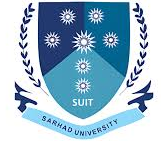THE MEDIATING ROLE OF ORGANIZATION CITIZENSHIP BEHAVIOR BETWEEN ISLAMIC WORK ETHICS AND JOB PERFORMANCE IN THE COMMERCIAL BANKS OF PAKISTAN
DOI:
https://doi.org/10.31529/2024/1/8Keywords:
Islamic Work Ethics, Job performance, OCB, Commercial banks of PakistanAbstract
This study investigates the mediation role of organizational citizenship behavior (OCB) between Islamic work ethics (IWE) and Job Performance (JP) in commercial banks of Pakistan. Data was collected from 336 respondents with the help of an adapted questionnaire with sound validity and reliability. Collected data was analyzed with the help of Smart PLS4. Findings of the study show that IWE positively and significantly affect OCB and JP. Results also confirmed the complementary partial mediating role of OCB such that for higher IWE and OCB the higher the JP. The findings of the study are believed to have a number of implications for the organizations, practitioners and academicians to foster IWE and OCB to maximize JP. In addition, the study improved our knowledge that how IWE affect OCB and job performance in the context of Pakistani’s commercial banks. The limitation of the study is that its conclusions are limited to the Pakistani’s commercial banks in its own distinct style of functioning, culture and environment. Further research may be carried out on the variables of workforce deviant behavior, organization politics, job engagement, organization culture, emotional well-being, organizational performance and locus of control in relationship with IWE. It is highly suggested to provide frequent training and seminars on IWE in order to improve OCB and job Performance.
Downloads
Published
Issue
Section
License
Copyright (c) 2024 Sajjad Ali Khan, Wali Rahman

This work is licensed under a Creative Commons Attribution 4.0 International License.
Submission of an original manuscript to the Journal will be taken to mean that it represents original work not previously published, that it is not being considered elsewhere for publication. And if accepted for publication, it will be published in print and online and it will not be published elsewhere.
The journal main policy reflects in its stance that the publication of scholarly research is exclusively meant to disseminate knowledge and not-for-purposes.
Copyright Statment
Sarhad Journal of Management Sciences is published by Sarhad University of Science and Information Technology Peshawar. This copyright statement entails that all contents (including text, tables, graphs, images, or any materials that is part and parcel of a research article submitted to the journal) belong to/ property of the person who owned it prior to submission this journal. Publication of the submitted article will not affect the ownership of copyright of the subject materials. SJMS and its users benefit from a general licence over all content submitted under a Creative Commons CC-BY licence over all content. However, content which is not part of the submitted article, is the property of SJMS. In a nutshell, the combination of all content on the SJMS website, the look and feel of the website, is the property of Sarhad University of Science and Information Technology Peshawar.
As an author or contributor, you grant permission to others to reproduce your articles, including any graphics and third-party materials supplied by you, in accordance with the SJMS Terms and Conditions. The licence granted to third parties over all contents of each article, including third-party elements, is a Creative Commons Attribution ("CC BY") licence. The current version is CC-BY, version 4.0 (http://creativecommons.org/licenses/by/4.0/), and the licence will automatically be updated as and when updated by the Creative Commons organisation.
You may include a requirement to reproduce copyright notices but you may not restrict the right to reproduce the entire article, including third-party graphics. This means that you must obtain any necessary third-party consents and permissions to reproduce third-party materials in your articles submitted to SJMS.
Copyright Statement updated September 13, 2022.




